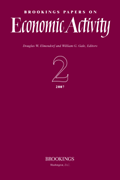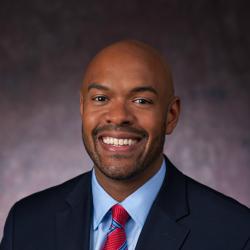Bradley Hardy, the Okun-Model Fellow in Economic Studies and an associate professor in the School of Public Affairs at American University, talks about his research on why people participate, or don’t, in social welfare programs like food stamps, and also new research on how past segregation may predict modern-day economic mobility.
Also in this episode: Molly Reynolds, a fellow in Governance Studies, offers her assessment of what’s happening in Congress, and what will happen in Congress after the August recess ends.
Show notes:
The Changing Safety Net for Low Income Parents and Their Children: Structural or Cyclical Changes in Income Support Policy?, Bradley Hardy, Timothy Smeeding, James Ziliak (Demography. forthcoming)
Location matters: Historical racial segregation and intergenerational mobility, Bradley Hardy and others (Economics Letters, September 2017)
Addressing income volatility in the United States: flexible policy solutions for changing economic circumstances, Bradley Hardy (Washington Center for Equitable Growth, October 2016)
Strengthening Temporary Assistance for Needy Families, Marianne Bitler and Hilary Hoynes (The Hamilton Project, May 2016)
Ways to listen to this episode:
Thanks to audio producer Gaston Reboredo with assistance from Mark Hoelscher, and to producer Vanessa Sauter. Additional support comes from Jessica Pavone, Eric Abalahin, Rebecca Viser, and David Nassar.
Subscribe to Brookings podcasts here or on Apple Podcasts, send feedback email to [email protected], and follow us and tweet us at @policypodcasts on Twitter.
The Brookings Cafeteria is a part of the Brookings Podcast Network.








Commentary
PodcastWelfare, segregation, economic mobility
August 18, 2017